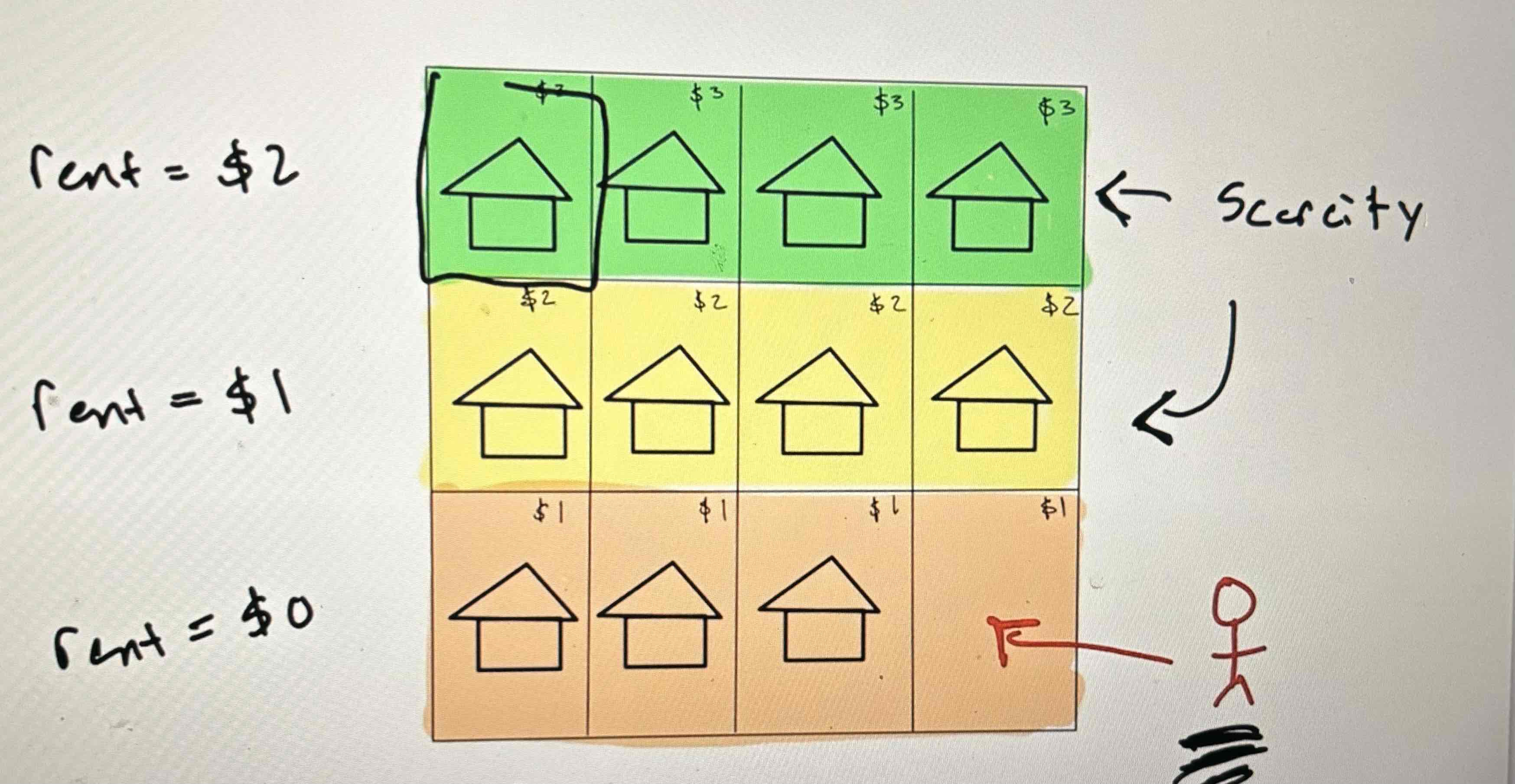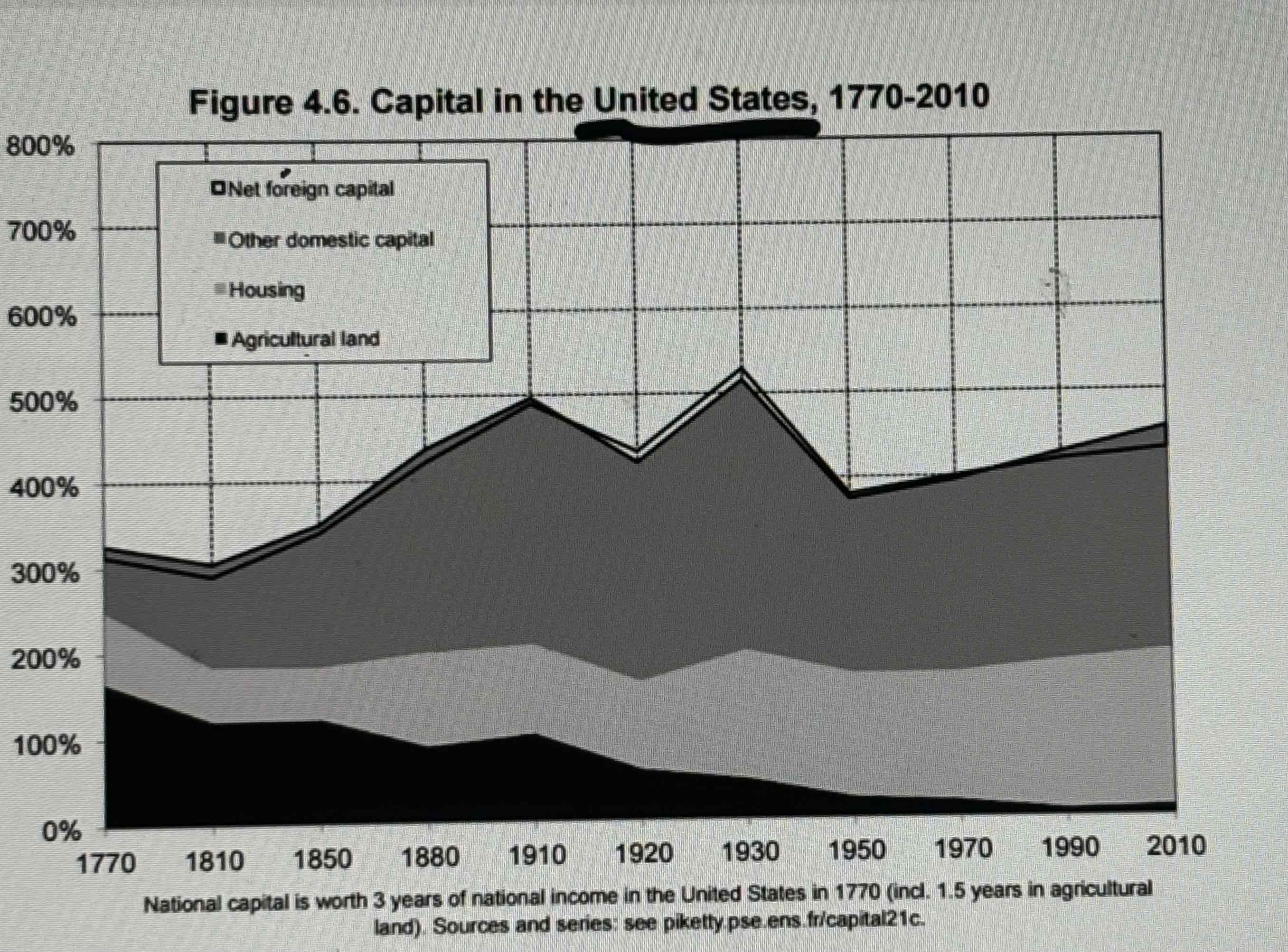David Ricardo
1/13
There's no tags or description
Looks like no tags are added yet.
Name | Mastery | Learn | Test | Matching | Spaced | Call with Kai |
|---|
No analytics yet
Send a link to your students to track their progress
14 Terms
Early Classical Economists
Smith (1776) and Malthus (1798)
The question they sought to answer was “What is going on?” and Smith was correct in his answer, being that the Division of Labor was leading to increasing amounts of wealth.
Late Classical Economists
Ricardo and Marx
Sought to answer the question “Who gets what?” aka who is going to get the fruits of this new mode of production (new capitalist system)
Classical framework
Society consisted of a set of classes: Landlords, Capitalists, and Workers
Which of these classes will dominate/control this new value/wealth that is being produced/created?
Landlords
Remnants of feudal aristocracy
supplies land, receives rent
Workers
Urban workers (employed in more sophisticated industrial production) and rural workers (former peasantry, from countryside)
supplies labor, receives wages
David Ricardo
1772-1823
British thinker and economist that was involved in the British parliament. He had some ideas on how the world worked but had to rely on intuition and logic as opposed to data.
Principles of Taxation (1817)
Tries to answer under this framework which of these three classes are going to dominate.
Ricardo’s Theory of Rent
Imagine we have an empty area of land that looks like the image provided. It produces one agricultural good and there are 3 different types of land. There are good plots of land shaded in green, the medium plots of land shaded in yellow, and the poor plots of land shaded in brown. When they’re farmed they produce $3 $2 and $1 a day respectively. Let’s imagine people begin arriving. At first people will naturally settle on the best plots of land so they can earn $3/day. There is no shortage of land cause very few people have arrived in the colony. Now let’s fast forward to a point where enough people arrive that there is scarcity in terms of the good land. Ricardo recognizes here that now a person who is arriving that wants to occupy their own plot of land’s best option is a yellow plot of land, meaning they can at best earn $2/day by farming this land. In this situation someone who owns a green plot of land will see an opportunity to rent their good land to a person arriving. This concept of rent only emerges under the condition of scarcity. To rent this land, the person arriving would have to be offered at least as much as they would earn on the medium land, meaning the rent the individual can charge is equal to $1. No rent can be charged on the yellow plots of land as there is no scarcity. Let’s continue this thought experiment further one step, where now there is scarcity of both the good plots of land and the medium plots of land. The only option for a person arriving now is to farm the poor land for $1/day. Now we see that if I am that landlord that owns a good plot of land, I can go to a new arrival and charge them rent of $2/a day and an individual that owns a medium plot of land can charge rent of $1/day. As this process continues the amount of rent that will be accumulated by land lords is increasing and it is increasing in its share of total output. This would result in the green land owners becoming extremely wealthy just by the fact that they own that scared resource. Ricardo puts this thought experiment in the context of Britain. Britain has an increasing population and because the quantity of land is fixed, that would naturally and inevitably led to the enrichment of the landlord class. According to Ricardo, it is the landlords that are going to dominate in this new framework. The reason he gives for this is known as the Principle of Scarcity.

Principle of Scarcity
When a resource is scarce and in demand, as the demand for that scarce resource increases the amount of financial gain that somebody who owns that resource will be able to derive from the very fact that they own that will increase. Scarcity leads to an enrichment of that individual who owns that particular resource.
Was he correct?
We see the exact opposite of what Ricardo predicted. Agricultural land has fallen over time. Why is this the case? Agricultural productivity has increased dramatically over the period of time from when he wrote his theory to the present. He assumed agricultural output was going to grow slowly overtime therefore his thought experiment claiming that the quantity of land is fixed, while it is true in the world, the effective productivity of those plots of land are not fixed and have increased dramatically from when Ricardo was writing in the early 19th century until the present. This means land is not the most important scarce resource. Ricardo was wrong about landlords dominating the new wealth being produced

To Ricardo’s credit…
While he was wrong about the idea that agricultural land was going to be the scarce resource, his principle of scarcity still holds important implications.
Ricardo’s Theory Tweaked to Residential Real Estate in Urban Centers
All jobs are located in lower Manhattan
If all jobs are located in this part of the city then the cost associated with commuting is $0
If all the jobs are located here and there is no scarcity of apartments here people will choose to live here
Now let’s say all the apartments in lower manhattan got occupied
There is scarcity in lower manhattan so now you can live a little bit farther away and incur a commuting cost of $1000 or if you live in lower manhattan you can charge a rent of $1000
As more people arrive in the city this process repeats where people in lower manhattan can charge $2000 rent and people in yellow can charge $1000 rent while there’d be no rent in the orange areas but a $2000 commuting cost
Median rent is highest in lower manhattan
We can expect individuals living in these areas are paying this rent in order to avoid the high cost of commuting either in time or subway fare or gas
This proves scarcity generates rent
While agricultural landlords didn’t come to dominate society the way ricardo predicted landlords are very powerful economic members of society because they own such a scarce resource
Where Ricardo was right
Principle of scarcity
Changes in relative prices benefit certain groups
Where Ricardo was wrong
Principle of scarcity - it matters, but not as much
If something happens where a resource is not as scarce or in demand as it once was then the value of that falls therefore the value of that rent falls and we see this with agricultural land
Because of the increase of agricultural productivity the principal of scarcity did not fight as hard as ricardo predicted
Rising importance of non-agricultural wealth